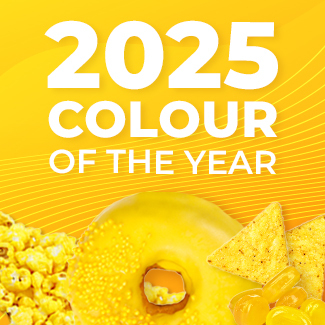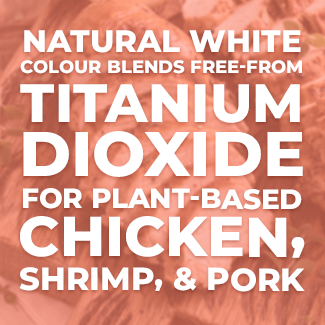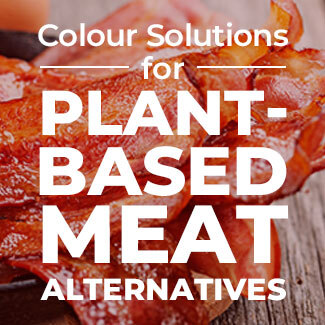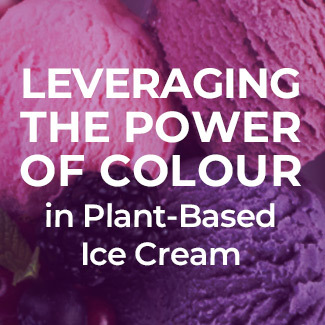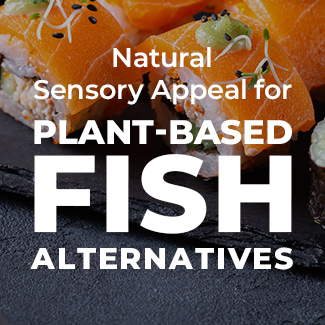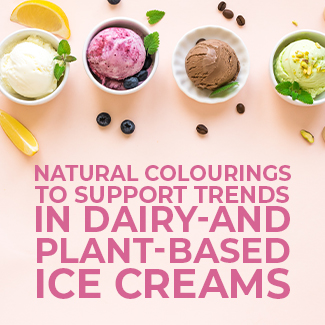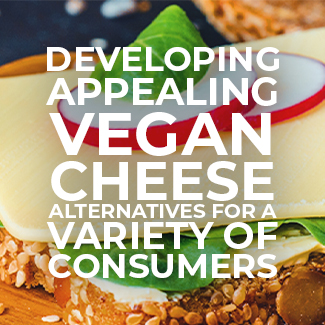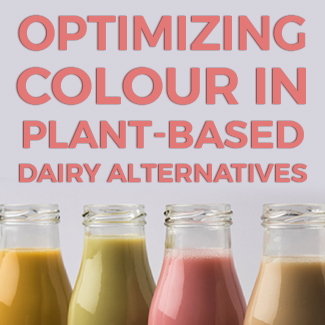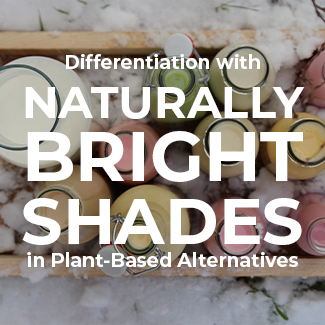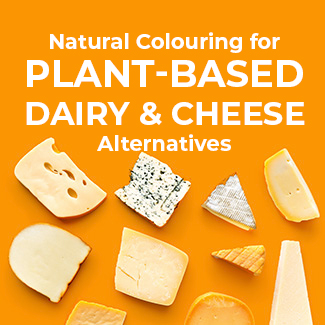Market Trends in the Growing Plant-Based Meat Category
There’s no denying that consumer demand for plant-based meat analogues is shifting the market. From major brands looking to capitalize on the segment’s growing popularity to new up-and-coming brands innovating quickly, everyone wants a piece of the plant-based meat pie. So what opportunities are there for a brand to make room for itself on the increasingly crowded shelf?

Opportunity: Target Growing Flexitarian Market
While consumers identifying themselves as “vegan” remain a relatively small portion of the population, a significantly larger percentage are increasingly trying to reduce their consumption of meat overall. Actually, Mintel predicts the biggest opportunity for ‘plant-based’ to remain with flexitarian consumers who wish to refocus their diets around plants. Motivations range from health-oriented to environmental concerns, but the result is that an opportunity exists for brands to produce plant-based meat products that well cater to an increasingly vegetarian share of diet, yet may not need to meet vegan label requirements.
In 2020 with COVID-19 impacting global consumer behaviour, many consumers agree that the situation has prompted them to increase their plant-based consumption and decrease the consumption of foods of animal origin in general, Mintel reports:

Products that combine animal and plant ingredients into “blended” meat alternatives could also be an easy way for brands to respond to consumers’ increasing interest in a more flexitarian diet. Brands that choose this route can enable a large consumer base into options to reduce their meat consumption and incorporate more plant-based food into their diet easily. Blended products can capitalize on consumers’ idea that even a little traditional meat, poultry, or fish can make a big difference in taste, whilst aligning on an ethically-aware and protein-rich dietary pattern.
This approach would also aid consumers who are looking for the sense of comfort a familiar food is able to provide to them. As much as plant-based alternatives to meat and dairy products grow, these segments still remain unknown and untried to many – and the unknown creates uncertainty. Even with UK consumers who eat world cuisines, 44% of them agree that world cuisines with unfamiliar names are off-putting, and in Italy, 36% of Italian consumers agreed that the COVID-19 outbreak has made them experiment less with different cuisines, as Mintel reports. In that context, the colour of plant-based alternative foods can be critical in ensuring that the final visual matches the expected visual of the traditional product. Whether it’s a red burger turning to brown during cooking, a chicken-free nugget, or a “tuna” or other fish imitation, colour experts can help identify the natural colour solutions to create the visuals consumers expect. The next wave of meat substitute innovations delivering a full sensory experience, from taste and texture to the raw and final cooked appearance will have a good chance to resonate with consumers.
Opportunity: Deliver Unique Formats and Products
The repertoire of meat substitutes is continuously expanding and plant-based burgers represent one of the segments in this category with high new product development activity.

Developers around the world are looking to create differentiation for their brands by releasing products that fill more niche markets. According to Mintel, a Dutch company has developed the world’s first vegan ribs, and alternative snacks like kelp jerky, veggie cocktail sausages, and even meat-free carpaccio are on the rise.
As the frozen and chilled aisle becomes more and more crowded, innovating beyond burger patties and sausages can offer brands a competitive edge. In addition to visually mimicking the original meat product, colour can be a key differentiator supporting shelf-standout vs. competitive offers. Appealing, tempting looks, whether an imitation of raw meat or pre-cooked packaged products, can be achieved with a variety of cost-effective blends with botanical labeling, as our technical team has previously discussed. In addition, colour can be used to differentiate flavour and special seasonings inline extensions for existing meat substitutes. For example, if your brand is working on a chicken-like product, a warm brown from a Natural Brown™ blend can create the appearance of BBQ, while a bright red-orange blend tells consumers that a spicy flavour would work well in a “chicken” curry.
Opportunity: Create Nutritional Value
Offering meat alternatives with nutritional benefits like high protein content or a lower sodium profile, brands could make these substitutes more appealing than their meaty counterpart. Plant-based dieting is often regarded as a healthy diet for the longer term, as the UK’s Eatwell Guide references.
41% of UK processed meat eaters agree
that health concerns have caused them to limit/reduce the amount of processed meat they consume
(Mintel 2019)
31% of french consumers are concerned
that plant-based protein food (e.g. soy burgers) are just as bad for you as processed meat (e.g. beef burgers)
(Mintel 2019)
Simple and recognizable ingredients allow companies to comply with the growing consumer demand for “clean label” and less processed products. Colouring foods and natural colours from botanical sources like beets provide an attractive shade and opportunity for a simple ingredient label.
Opportunity: Spotlight Sustainability
Plant-based meat is often positioned as good for both the environment and for animal welfare. Connecting these products to sustainability and corporate responsibility efforts can engage consumers motivated by environmental concerns.
A 2018 study by Beyond Meat, the Center for Sustainable Systems, and the University of Michigan claims that compared to traditional US beef, plant-based burgers are more sustainable:
less impact on land use
less energy required
less impact on
water scarcity
less impact on land use
Next Steps for Plant-Based Product Development
These are just a few opportunities we see across the industry for plant-based innovation around the world. When you’re ready to move forward with your next plant-based meat products, our team of technical experts is here to help you create the full sensory experience that will wow your consumers. The market is moving fast, so it is never too early in the development process to schedule a consultation with an expert. You can also request a free sample when you’re ready to move your ideas to the benchtop!






